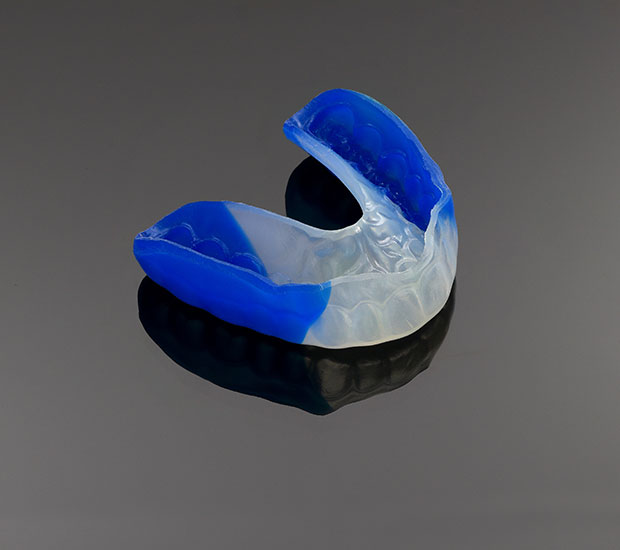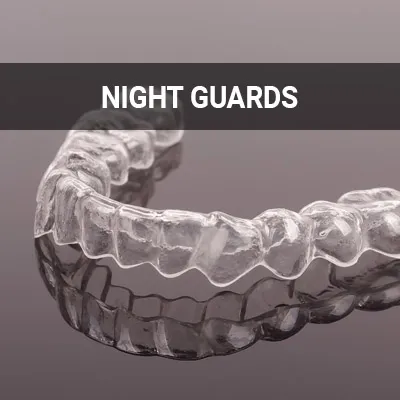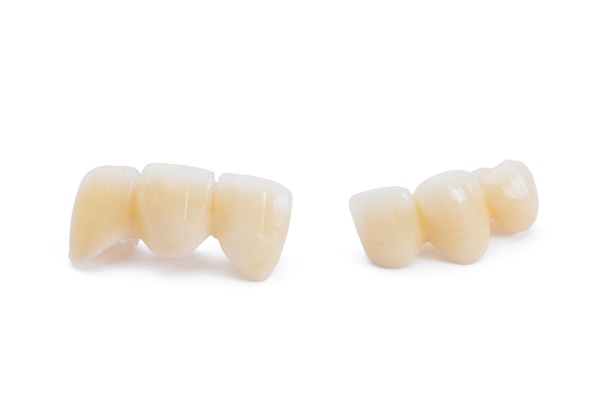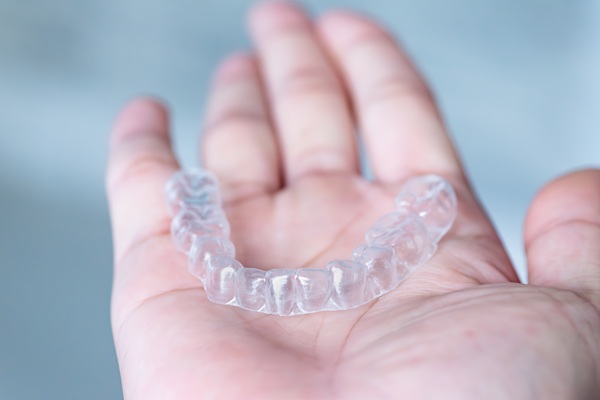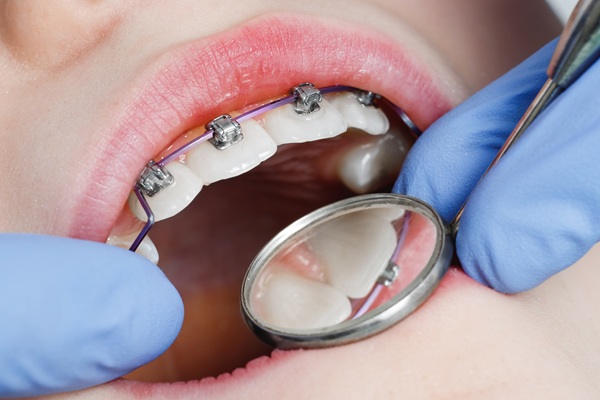Mouth Guards Quincy, IL
Mouth guards protect the teeth and gums from damage. People can use mouth guards to protect their teeth and mouths during a range of activities, from playing sports to sleeping. There are various types of mouth guards, depending on the patient's needs.
Buffalo Prairie Dental offers mouth guards in Quincy and the surrounding area. Our team can help you keep your smile safe. Call us today at (217) 334-4312 to learn more about our services or schedule an appointment.
The Right Candidate for a Mouth Guard
Dental mouth guards are appropriate for both children and adults and can keep teeth protected from various risks. The American Dental Association recommends custom-fitted mouth protectors during any activity that might pose a risk of injury to the mouth. Many people also suffer from teeth clenching and grinding, especially at night. This leads to excessive wear and tear on the teeth, jaw pain, and severe headaches. A mouth guard covers the top teeth and separates them from the bottom teeth to prevent grinding and alleviate muscle tension caused by clenching.
People who have braces or other fixed dental appliances can also use mouth guards. Typically a mouth guard covers just the upper teeth, but patients can also receive one for braces on the lower teeth. A mouth guard remains especially important for anyone who has braces and participates in sports. Due to the metal brackets and braces, a hit to the face can lead to a significant injury to the mouth's soft tissues.
“Dental mouth guards are appropriate for both children and adults and can keep teeth protected from a variety of risks.”
The Process of Creating a Custom Mouth Guard
Custom mouth guards provide people with the best protection and fit for their mouths. They are designed to a patient's specific needs, whether it is for sports or nighttime use. Our team personalizes these devices to a patient's bite to provide optimal protection and comfort for the teeth and gums. The first step of creating a custom-fitted mouth guard is to take a mold or impression of the patient's teeth.
The impression will serve as a replica of the mouth so we can create a mouth guard over it. There are two methods to create custom mouth guards. The first method involves stretching the thermoplastic mouth guard material over the model with a vacuum machine. The other method is the pressure laminate method which involves using a pressure thermo-forming machine to stretch the mouth guard material over the model. This technique gives mouth guards multiple protective layers rather than only one.
“Custom mouth guards provide people with the best protection and fit for their mouths.”
When to Wear a Mouth Guard
Mouth guards are beneficial during various activities, from playing sports to sleeping at night. They are especially helpful for children and adults who clench their jaws and grind their teeth. Wearing a nocturnal bite plate or bite splint at night while sleeping can provide patients suffering from bruxism with some relief.
The mouth guard acts as a barrier between the teeth so that the enamel does not get worn down from grinding during sleep. They can protect teeth from excessive wear and temporomandibular joint disorders. It also allows the jaw muscles to recover during sleep.
“Wearing a mouth guard at night during sleep can provide patients with bruxism with some relief.”
Check out what others are saying about our dental services on Yelp: Mouth Guards in Quincy, IL
Sleep Apnea and Snoring
Sleep apnea is a sleep disorder that happens when breathing becomes interrupted during sleep. When untreated, sleep apnea can cause people to stop breathing many times at night and lead to serious health complications. Fortunately, mouth guards are available to help people manage their condition and improve their breathing ability. Specialized mouth guards can prevent the tongue from slipping back and blocking the throat or move the jaw forward.
Mandibular advancement devices (MADs) push the lower jaw forward to open up the airway. Tongue retaining devices (TRDs) hold the tongue and prevent it from slipping back and blocking the airway. These appliances can also help people who snore since they keep the airway open during sleep. Although there is no cure for snoring, mouth guards can significantly minimize the amount.
“Specialized mouth guards can prevent the tongue from slipping back and blocking the throat or move the jaw forward.”
Questions Answered on This Page
Q. Who is a good candidate for a mouth guard?
Q. Why should I wear a mouth guard while playing sports?
Q. How is a mouth guard created?
Q. How often should people wear their mouth guards?
Q. How can mouth guards help sleep apnea and snoring?
People Also Ask
Q. What are the dangers of not using a mouthguard?
Q. What methods are available to repair a chipped tooth?
Protecting the Mouth During Sports
Accidents can happen during any physical activity. A custom-fitted mouth guard designed for athletics will protect the soft tissues of the mouth and lips. It can also prevent significant tooth damage or even tooth loss. Any athlete can benefit from wearing a mouth guard, but it is especially helpful for anyone who plays a contact sport. The flexible plastic material absorbs the force of any hits to the face or teeth.
A mouth guard remains just as important as any other piece of athletic equipment. An athletic mouth guard is slightly thicker than ones designed for night use and may cause the upper lip to protrude slightly. For the most part, a dental mouth guard used for sports is very difficult to see by spectators. Our team will help identify the appropriate mouth guard for each patient's needs.
“Any athlete can benefit from wearing a mouth guard, but it is especially helpful for anyone who plays a contact sport.”
Frequently Asked Questions
Q. How much does a mouth guard cost?
A. The cost of a mouth guard depends on the type, material, and other specifications. Some insurance plans may help cover the cost. Since every insurance plan is different, patients should contact their insurance provider for more coverage information.
Q. How should I take care of my mouth guard?
A. It is important to take care of mouth guards to prevent them from breaking or warping. Rinsing the device with cold water and brushing them with a soft-bristled toothbrush will remove unwanted bacteria and debris. We recommend storing them in a protective container and avoiding hot surfaces or sunlight that can cause the mouth guard to warp.
Q. What causes bruxism?
A. Bruxism is when someone grinds their teeth and clenches their jaw. It is often the result of stress, sleep disorders, acid reflux, or a misaligned bite. Certain activities, such as smoking or drinking alcohol, can also increase the risk of grinding teeth.
Q. Can mouth guards go over braces?
A. Braces wearers should use a mouth guard since they are especially vulnerable to sports-related injuries. Braces can help prevent soft-tissue injuries to the inner cheeks and lips. Patients can have custom-fitted mouth guards that fit over braces.
Q. How long does a mouth guard last?
A. The longevity of a mouth guard will depend on how frequently a person uses their device. With the right care, mouth guards can for several years. Patients should bring their mouth guard to dental check-ups for inspection. Custom-fitted mouth guards are typically more durable than over-the-counter ones.
Family Dental Terminology
Learn More About Mouth Guards
Mouth guards can protect the mouth and teeth during various activities, from sports to sleeping. Our team at Buffalo Prairie Dental can determine whether you are a good candidate for a mouth guard. Call us at 217-334-4312 for more information about our services or schedule an appointment.
Helpful Related Links
- American Dental Association (ADA). Glossary of Dental Clinical Terms. 2024
- American Academy of Cosmetic Dentistry® (AACD). Home Page. 2024
- WebMD. WebMD’s Oral Care Guide. 2024
About our business and website security
- Buffalo Prairie Dental was established in 2019.
- We accept the following payment methods: American Express, Cash, Check, Discover, MasterCard, and Visa
- We serve patients from the following counties: Adams County, Brown County, Marion County and Lewis County
- We serve patients from the following cities: Quincy, West Quincy, Taylor, Payson, Camp Point, Mendon, Mt Sterling and La Grange
- National Provider Identifier Database (1750440632). View NPI Registry Information
- Norton Safe Web. View Details
- Trend Micro Site Safety Center. View Details
Back to top of Mouth Guards
